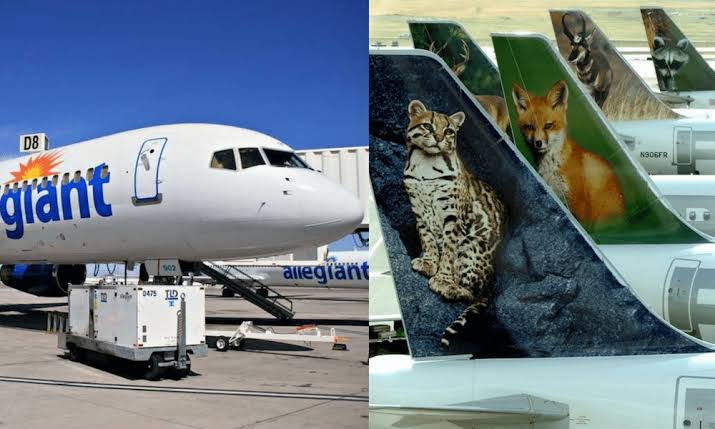Allegiant Air Set to Merge with Frontier Airlines in Landmark Low-Cost Carrier Deal
Allegiant Air Set to Merge with Frontier Airlines in Landmark Low-Cost Carrier Deal
By Aviation Correspondent
In a bold move set to reshape the U.S. aviation landscape, Allegiant Air and Frontier Airlines have announced plans to merge, creating what will become one of the largest ultra-low-cost carriers (ULCCs) in North America. The landmark deal, valued at approximately $2.5 billion, is aimed at strengthening the position of both airlines in a fiercely competitive domestic market while offering expanded options for cost-conscious travelers.
The combined carrier will serve over 150 destinations across the United States, Mexico, and the Caribbean, with a combined fleet of more than 250 aircraft. The new airline, which is expected to retain the Frontier name but incorporate Allegiant’s operating model and customer base, will become a major player in the ULCC sector—rivalling industry giants like Southwest Airlines and JetBlue.
A Strategic Alliance in the ULCC Market
The merger represents a strategic realignment for both airlines. Allegiant Air, based in Las Vegas, has long focused on connecting smaller, underserved cities with popular leisure destinations. Frontier Airlines, headquartered in Denver, operates a similar model but with a larger focus on hub-based operations and dense, high-volume routes.
By joining forces, the two carriers plan to create a more efficient network that can better withstand economic volatility, fuel price increases, and fierce fare competition from legacy airlines and other budget carriers.
“This merger allows us to combine our strengths—Allegiant’s unmatched efficiency in underserved markets with Frontier’s route density and operational scale,” said Maurice Gallagher, CEO of Allegiant Travel Company. “Together, we can deliver the most competitive prices and a superior travel experience to millions of Americans.”
Barry Biffle, CEO of Frontier, echoed the sentiment: “Our goal is to democratize flying even further. This merger helps us achieve that by offering more flights, lower fares, and greater access to leisure destinations nationwide.”
What Passengers Can Expect
For travelers, the merger promises expanded access to low fares, more nonstop routes, and increased flight frequencies to popular destinations like Las Vegas, Orlando, Denver, Phoenix, and Myrtle Beach. Allegiant’s strong presence in smaller airports, such as Punta Gorda, FL, and Provo, UT, combined with Frontier’s operations in major hubs like Denver and Miami, creates new connectivity that neither carrier could achieve alone.
Executives say that the merged airline will also invest in newer, more fuel-efficient aircraft, digital booking upgrades, and a streamlined loyalty program designed specifically for budget-conscious travelers.
However, changes may also bring growing pains. Industry analysts warn that fleet integration, workforce coordination, and aligning company cultures could present challenges in the short term. Customers may also face adjustments in baggage policies, seating options, and route changes as the two carriers consolidate operations.
Regulatory Scrutiny Ahead
While the merger has been welcomed by many investors and budget-minded travelers, it is likely to face intense scrutiny from federal regulators. The U.S. Department of Justice (DOJ) and Department of Transportation (DOT) will closely examine the deal for potential antitrust concerns.
In 2023, the DOJ blocked a proposed merger between JetBlue and Spirit Airlines, arguing that it would reduce competition and lead to higher fares. With the Allegiant–Frontier deal now on the table, regulators will want to ensure that the new carrier does not create monopolies on key routes, especially those involving smaller regional airports where Allegiant has little competition.
Industry expert and former FAA official Linda Kozlowski notes: “This merger is structured more thoughtfully than the JetBlue–Spirit deal. Both carriers already operate in niche, underserved markets and don’t heavily overlap on most routes. That could work in their favor during the regulatory review.”
Allegiant and Frontier have announced that they will fully cooperate with all regulatory bodies and remain confident that the merger will be approved by early 2026.
Employee and Union Reactions
The merger will affect approximately 16,000 employees combined. Leaders from both airlines have promised no immediate layoffs and have emphasized a commitment to preserving jobs, especially at major operational bases in Las Vegas, Denver, and Orlando.
Unions representing flight attendants, pilots, and ground crews have responded with cautious optimism, calling for transparency in the integration process and protection of workers’ rights.
“We welcome any merger that grows the industry and creates opportunity,” said Brian Rogers, spokesperson for the Airline Pilots Association (ALPA). “But we will be watching closely to ensure that labor contracts, safety standards, and fair compensation are honored during this transition.”
The companies also announced a plan to open a new training and operations center that will support the workforce expansion needed to maintain the larger route network.
Financial Impact and Market Reaction
Wall Street responded positively to news of the merger. Stock prices for both Allegiant Travel Company and Frontier’s parent company rose sharply following the announcement, reflecting investor confidence in the deal’s long-term profitability.
Analysts predict that the merger could drive down ticket prices in key markets, especially those where legacy carriers dominate. “If executed well, this deal could disrupt fare structures in multiple regions and push even the major airlines to reassess their pricing models,” said aviation analyst Mark Drennan of AeroStrategies Group.
The combined airline is expected to generate more than $6 billion in annual revenue within the first two years of integration, with significant cost savings anticipated through operational synergies, shared infrastructure, and combined purchasing power for fuel and aircraft.
What Comes Next?
The merger agreement will now undergo a comprehensive review process by regulatory bodies and is subject to shareholder approval. If greenlighted, integration efforts will begin in late 2025, with full consolidation expected by the end of 2026.
In the meantime, Allegiant and Frontier will continue to operate as separate brands. Passengers with existing bookings will not be affected, and customer service teams have been deployed to manage any questions or concerns.






